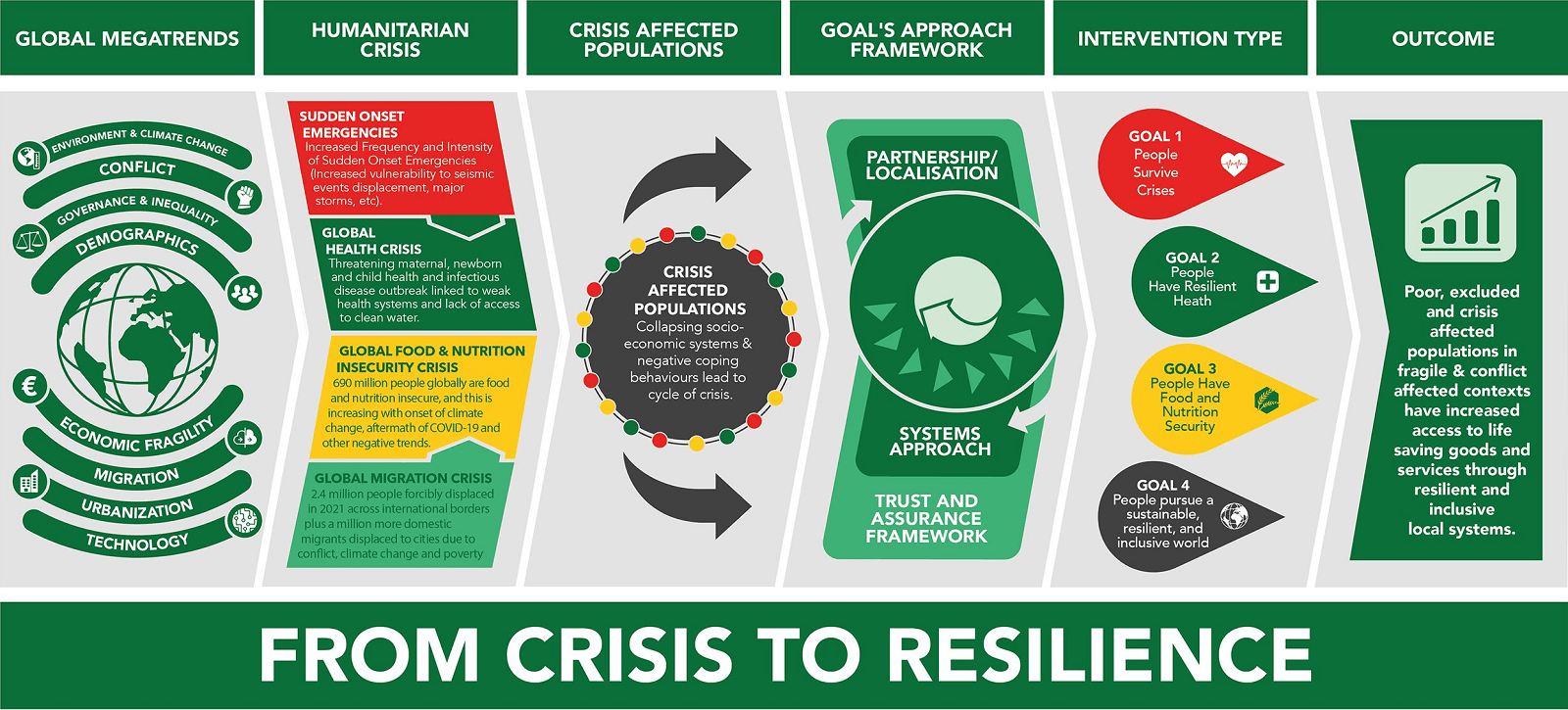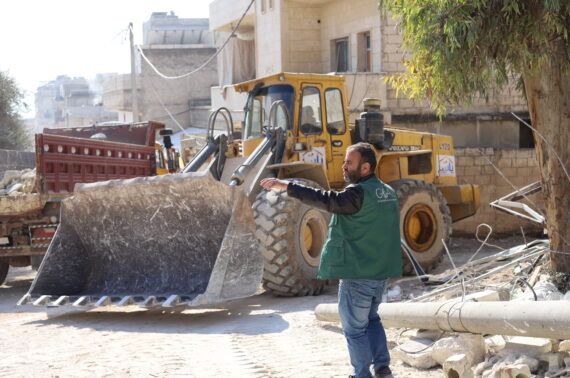How we work
GOAL has four operational and programmatic goals that anchor and guide our work: Emergency Response; Resilient Health; Food & Nutrition Security; and the Pursuit of a Sustainable, Resilient and Inclusive World. In addition, Goal 5 focuses on Building GOAL's Organisational Resilience.
We engage communities, build on their inherent capacities, and strengthen the systems in which they live and work to help achieve resilient well-being. Throughout our programming, we identify and rely on strategic partnerships that complement and enhance GOAL's delivery of a timely and appropriate responses.
Strategic goals in action
Goals 1-4 are grounded in our Theory of Change and articulate where GOAL believes it can add the most value:
Goal 1 - People Survive Crises
Goal 2 - People Have Resilient Health
Goal 3 - People Have Food & Nutrition Security
Goal 4 - People Pursue a Sustainable, Resilient and Inclusive World
These four goals also contribute towards the UN SDGs (Sustainable Development Goals) - SDG 1 (No Poverty), SGD 2 (Zero Hunger), SDG 3 (Good Health & Well-Being), SDG 5 (Gender Equality) and SDG 6 (Clean Water & Sanitation).
Goal 5 focuses on strengthening GOAL’s organisational framework and infrastructure to be more responsive, and adaptable to the challenges and opportunities that come with operating in a more complex and rapidly changing world.



